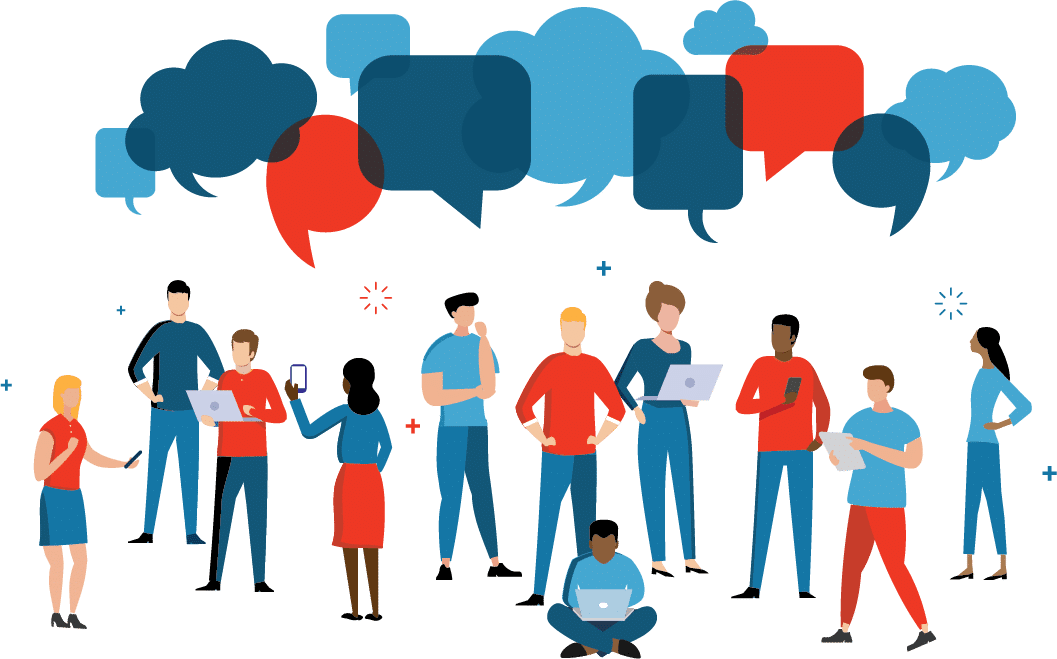Fear can sometimes be a powerful motivator, which is why, as a study coach, I usually don’t sugarcoat things. Throughout the study process, I’m honest with students and continually remind them that exams are challenging, so they need to work hard. However, as exam day approaches and they’ve put in the required work, my focus shifts to helping the student have a positive mind-set. There’s a saying I love to use when wrapping up a pre-exam seminar or conference call for one of our corporate clients—“Whether you think you can or think you can’t, you’re probably right.” Positive and negative thinking are powerful and can become self-fulfilling prophecies.
Over the years, I’ve had the privilege of assisting tens of thousands of students prepare for exams either directly as a trainer or indirectly as part of SeeWhy Learning’s curriculum team. The following story comes to mind.
I had been coaching Wayne, a student of mine, as he prepared for a licensing exam in the securities industry. He called me after the exam to tell me that he thought it went well. He also shared with me that on the way to the exam, he mailed a postcard to himself. He piqued my curiosity, so I asked him why he would do that. He told me that the postcard said, “Congratulations! You passed your exam!” At first, I thought it was a little strange, and of course it could have been embarrassing if he failed, but I also thought it was pretty cool. If it made him feel more confident going into the exam, then it was well worth the price of a stamp. Now in the interest of reducing your carbon footprint, I’m not going to suggest you do that (perhaps send a delayed email), but I am going to give you five tips for exam day.
Tip #1: Do not study on exam day
Let’s face it—by the time exam day rolls around, you know what you know, and there isn’t much time to change that. I’ve been a trainer for more than two decades, and I have never had a student tell me that they studied on exam day and that it made the difference. However, I’ve certainly heard of students who hit a figurative wall during the exam because they were tired, and it caused them to fail. So instead of studying on exam day, perhaps have coffee with a friend, go for a walk, or do whatever will make you feel mentally prepared for the stress of an exam. If you insist on studying, only focus on things you already know. In other words, any studying you do is about building confidence, not trying to learn something new at the last minute.
Think back to that wonderful day in history when the Toronto Raptors won their first NBA championship. I can assure you that on game day, Coach Nick Nurse did not put the team through a gruelling workout. Instead, they probably took some free throws, walked through the offense, which they already knew like the backs of their hands, chilled out in the locker room, and got mentally prepared for the big game. Likewise, you shouldn’t give your brain a workout on exam day by studying.
Tip #2: Take your textbook with you
Even though I don’t recommend studying on exam day, I do recommend that you take your textbook with you as a sort of security blanket. On the way, you may panic and think you’ve forgotten something that you actually know quite well. Instead of allowing that negative energy to fester, you can look it up quickly. I’m sure you’ll realize that it’s still all there in your brain and you haven’t forgotten it.
Tip #3: Arrive early
When it comes to this tip, I am speaking from personal experience. In one case, my exam was at the local university, which I had traveled to several times before. I knew for sure, even with bad traffic, it would take a maximum of 30 minutes to get there. To be safe, I gave myself 45 minutes. Although I got to the university on time, I had no idea where the exam was taking place because the room number had changed. At the last minute, I noticed a sign on the wall that directed me to the exam room. Although I made it to the exam on time, the fear of being late or perhaps missing it altogether totally stressed me out, and I didn’t start the exam on the right foot. Ever since that day, I get to the exam location at least 30 minutes early, find the room, and then, time permitting, go for a short walk.
Tip #4: Be anti-social
Over the years, I’ve observed students conversing with one another moments before the exam begins. Their conversations are often counterproductive. The other student is more interested in building his or her own confidence, not yours. Perhaps he or she mentions attending a seminar and you didn’t or asks how comfortable you are with a particular concept, and you’re not. This can rattle your confidence. I’ve even seen this occur when the two students who were talking didn’t even realize they were taking completely different courses. Keep in mind, writing an exam isn’t a team sport, and your pre-exam ritual shouldn’t be. You can always chat after you’re done.
Tip #5: Sit near the front of the room
I’m sure you would agree that you would probably perform better if you had the option of writing the exam in your own home. Unfortunately, you usually can’t do that, so as much as possible, you want to try to recreate the study environment you have at home. Sitting near the front of the room may help. Each time you look up, you won’t see a bunch of people in front of you. You also won’t see students leaving early or flipping through their exams faster than you, which can distract you from the task at hand. Heck, if it helps, you may want to even remove your shoes and wiggle your toes a bit. Most people don’t wear their shoes at home.
In closing, I hope I’ve convinced you of the importance of your pre-exam ritual. Referencing another NBA example, in the 2001 season, the Toronto Raptors found themselves in game seven of the semifinals against the Philadelphia 76ers. If they won, they would advance to the NBA finals for the first time in franchise history. The Raptors’ young superstar Vince Carter was the focus of the media that day. Instead of staying with the team, he opted to attend his college graduation in North Carolina during the day and then fly to Philadelphia just in time for tip-off. With seconds remaining, the Raptors were within one shot of making it to the NBA finals. As history would have it, Carter took and missed the final shot, and the Raptors lost by one.
To this day, some fans and sports casters wonder if Toronto would have won if Carter skipped his graduation and stayed with the team. On the other hand, perhaps attending his graduation was his way of getting mentally prepared, and missing his graduation would have negatively affected his performance, resulting in the Raptors losing by more than just one point. We will never know what might have happened, but I’m sure we can all agree that what an athlete does on game day can affect his or her performance, and the same holds true for a student.
Look for the fifth and final blog of this series, “Start Your Exam Off Right”, we are going to discuss some of the strategies that you can employ during the exam to improve your results.
Recent Videos

Monetary & Fiscal Policy Part 2

Monetary & Fiscal Policy






